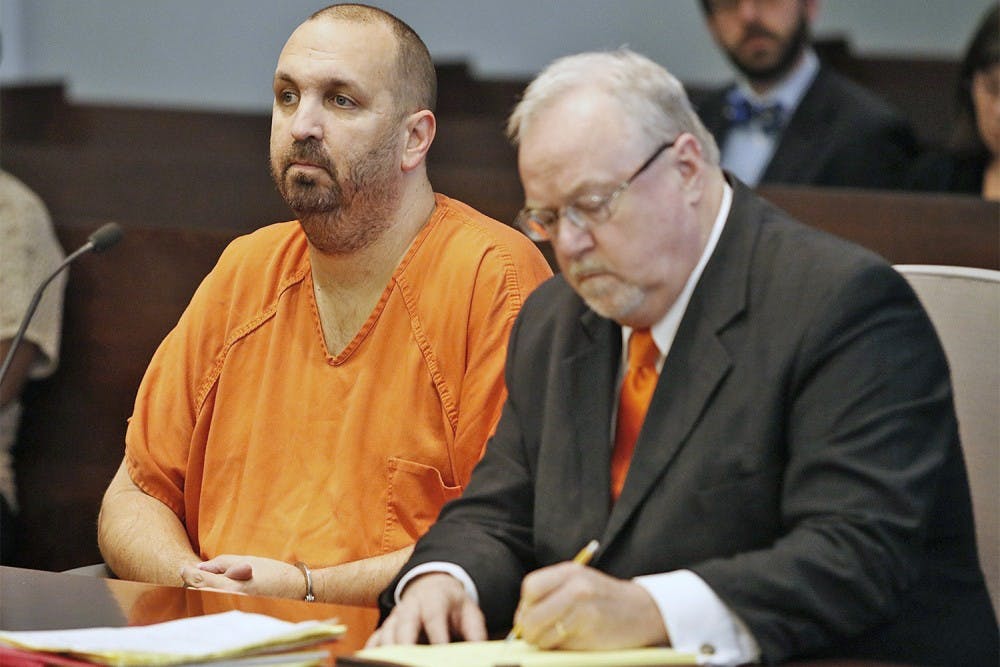Judge Orlando Hudson Jr., ruled during a pre-trial hearing that Hicks is qualified for the death penalty because the state of North Carolina has found at least two aggravating factors were present in the shooting deaths of Deah Barakat, Yusor Abu-Salha and Razan Abu-Salha.
“The state has established the existence of at least two statutory aggravating factors: one, that this crime was committed in the commission of another murder; and two, that the defendant engaged in other crimes of violence at the time of this murder,” Hudson said.
Assistant District Attorney James Dornfried said much of the investigation by local and federal agencies surrounding the Chapel Hill shooting has been completed.
“There are a few more discoveries that need to be turned over,” he said.
Those discoveries include medical examiners’ reports for Hicks, the forensic extraction from Hicks’ computer hard drive and additional information from the federal investigation of the shooting, which requires a court order, he said.
Dornfried listed forensic evidence linking Hicks to the crime, including DNA evidence showing the blood of Yusor Abu-Salha on Hicks’ pants, gunshot residue on Hicks’ pants and shirt and a ballistic match from shell casings found at the scene to a firearm that was recovered from Hicks’ vehicle.
In addition to the three first-degree murder charges, Hicks is also charged with discharging a firearm into an occupied dwelling.
Dornfried said Hicks told police that on Feb. 10, he retrieved a firearm from his residence and went to the residence of Deah Barakat and Yusor Abu-Salha, where Barakat answered the door and a brief interaction ensued.



